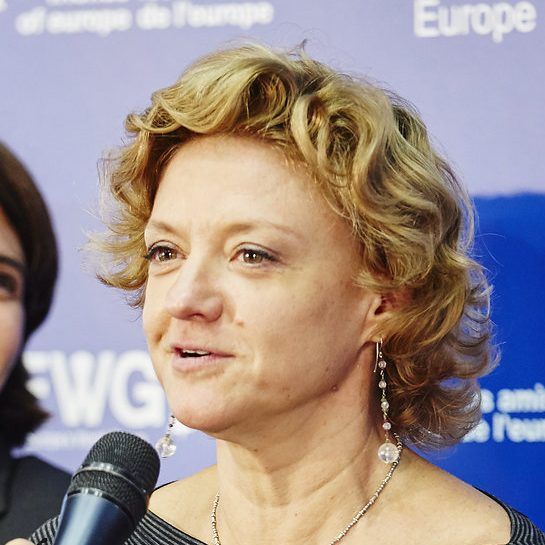A bold vision for a climate-neutral and competitive Europe
Next event In person & livestreamed

- Area of Expertise
- Climate, Energy & Natural Resources
Climate, Energy & Natural Resources

President of the European Alliance to Save Energy, former co-president of the European Green Party, former member of the European Parliament and Trustee of Friends of Europe
Climate is high on the agenda of this week’s meeting with European Union heads of states and governments. What is not really certain is if the Council will manage to keep a united and determined front ahead of COP26 in Glasgow.
The problem the EU faces, as most other developed economies, is that behind climate ambitions and political declarations, the numbers do not add up. Too much time and resources are lost in the attempt to go around a basic reality that only a few days ago was clearly stated with no possibility of misunderstanding in the International Energy Agency’s new report, Net Zero by 2050 Roadmap: we need to stop investing in fossil fuels now.
That includes new gas pipelines, as well as grey and blue hydrogen. We must stop hiding behind the magic word ‘transition’ to prolong our still enormous dependence on natural gas, coal and oil. We need to invest and dedicate the massive amount of public resources that are available at all levels to help all of us to go green: this is no ethical issue. It is a sound economic, social and environmental choice, as it gives a real perspective to our industries and workers to stay competitive and to look to the future with trust. In other words, accelerating the green transformation is a very good news for Europe’s citizens, businesses and the environment.
We need to reduce our energy consumption by half if we are to respect our targets
In December 2020, in light of the EU’s commitment to increase its climate ambition in line with the Paris Agreement, EU leaders endorsed a common target to reduce the bloc’s net greenhouse gas emissions by at least 55% compared to 1990-levels by 2030 and confirmed the goal to become the first climate neutral region by 2050. This was a substantial step up from the previous 2030 target of cutting emissions by 40% and can be considered a result of pressure from scientific communities, public opinion and media to raise awareness and the sense of urgency on the major global risk represented by climate change.
Still, this is not enough and there are still too many loopholes. Global emissions continued to increase throughout 2019 and 2020. Every week new reports are issued on the need to speed up efforts if we don’t want to face not only environmental but also terrible social and economic consequences.
Even if many think that this is the EU’s only area of real global leadership, we risk losing it if we are not able to match words with action. We will judge the capacity of living up to the declared ambition on five important issues that the EU needs to take a strong position on by summer.
First is energy efficiency. We need to reduce our energy consumption by half if we are to respect our targets. According to the European Commission there is currently a gap of around 3% between member states’ national energy and climate plans; 75% of our buildings are inefficient, the transport and agricultural sectors’ emissions are still on the rise and industry could improve on about 20% of its energy consumption.
‘Energy efficiency first’ must be the guiding principle for all infrastructural and energy choices in the future
In the upcoming legislative review of Fit for 55, we therefore need to raise the energy efficiency target up from 32.5% to 40% – and make it binding. In addition, the new package should strengthen the nationally binding targets under the Effort Sharing Regulation (ESR) covering emissions from road transport, buildings and agriculture. The ESR must continue to play a crucial role for the accountability of member states.
Third, ‘energy efficiency first’ must be the guiding principle for all infrastructural and energy choices in the future. Fourth, renewables need to increase their share and more investments must be directed to resolve the still open questions when it comes to accumulation and batteries.
Finally, the new hype around hydrogen must be restricted to green hydrogen, without ambiguities that would leave the door open to the persistence of fossil fuels in our systems longer than needed.
The success of the EU climate action will greatly depend on its capacity to deliver on these five points. We will soon find out if we will be up to the challenge.
You may also like…
Next event In person & livestreamed

Past event In person & livestreamed

Past event In person & livestreamed

Past event In person & Livestreamed





Stay informed
We use cookies and similar technologies to adjust your preferences, analyze traffic and measure the effectiveness of our campaigns. Learn more about our privacy policy.